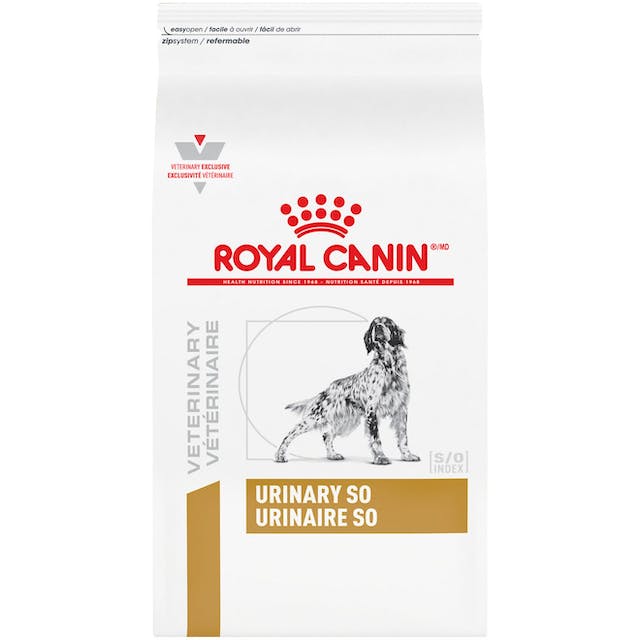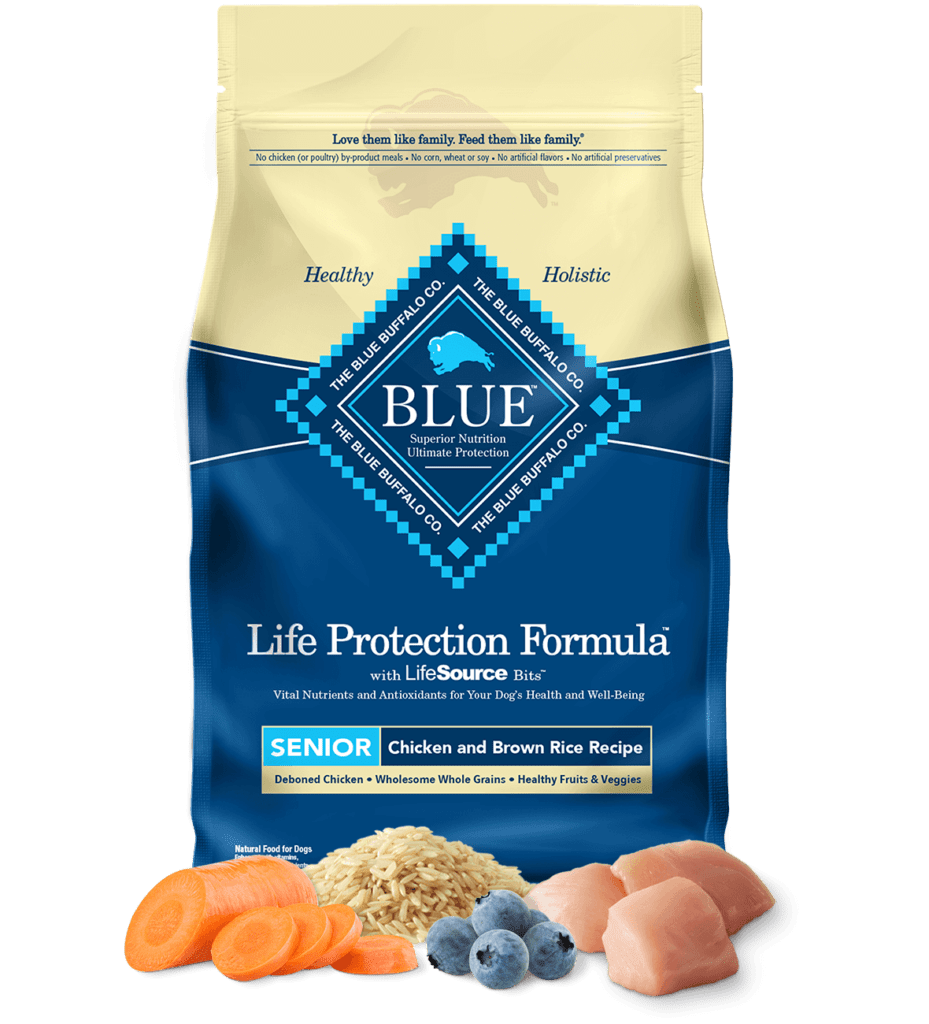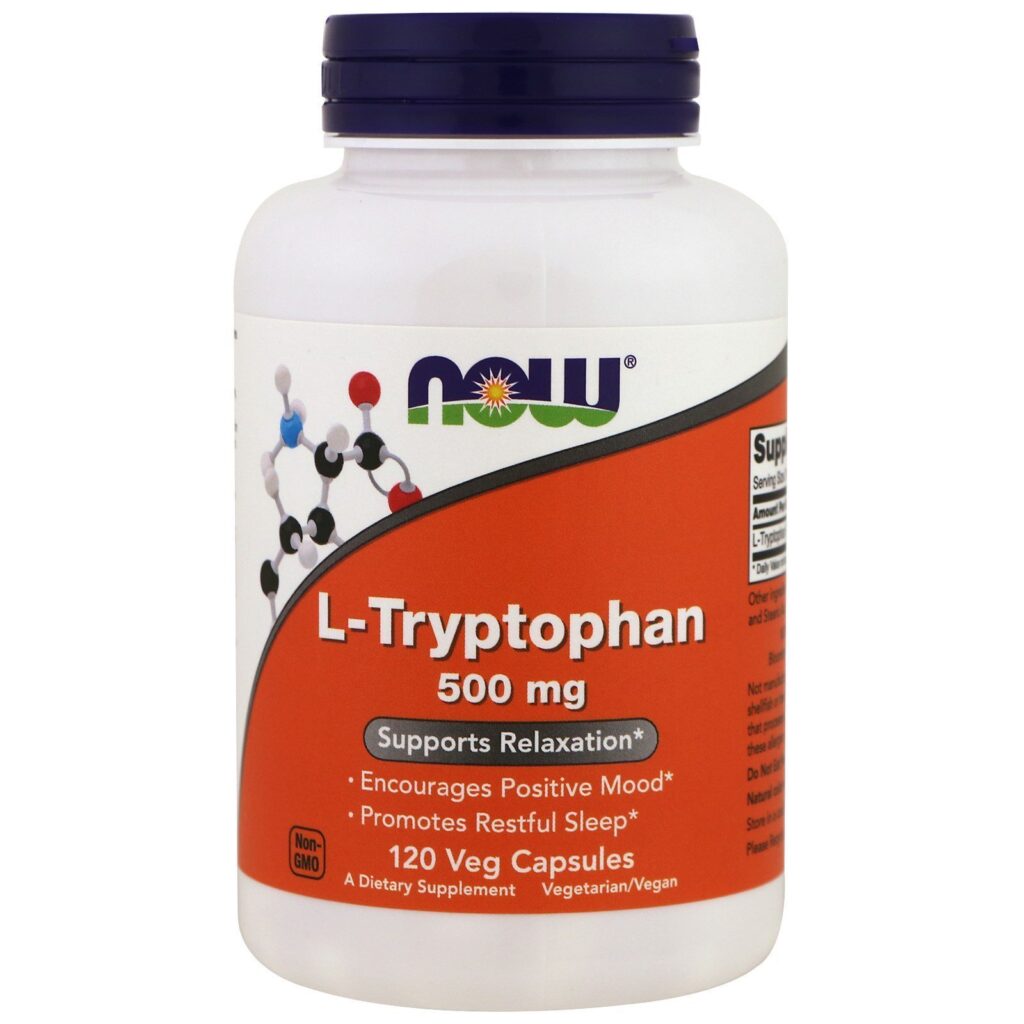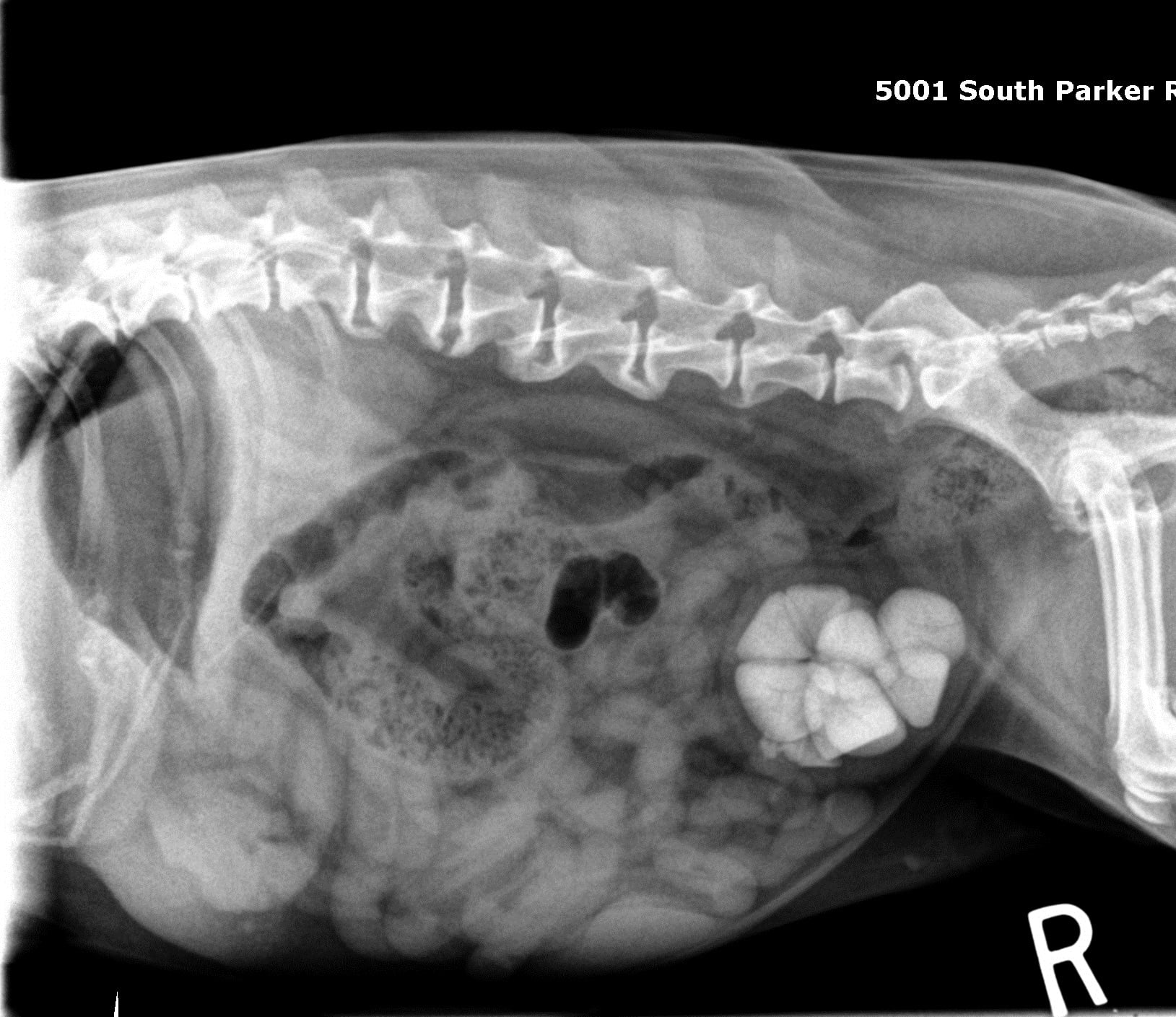In cases of canine Urinary Tract Infection (UTI), particularly when accompanied by bladder stones, veterinarians typically recommend changes in diet as the initial course of treatment before considering surgical options.
While a quick search reveals many natural diet protocols available for dogs which attempt to address the problem of UTIs, a veterinarian will likely prescribe a strict diet of Royal Canin Urinary SO dry dog food, possibly with soft food and extra liquid added for hydration purposes.

This article attempts to compare the ingredients and analysis of Royal Canin Urinary SO food with that of Blue Buffalo Life Protection Formula Senior Chicken and Brown Rice Recipe, with a goal of finding a food that supports urinary health without requiring a veterinary prescription.

What is Important in a UTI Diet for Dogs?
In canine diets, ingredients aimed at supporting urinary tract health typically focus on:
- Maintaining Urinary pH: Diets formulated for urinary health often aim to maintain a specific urinary pH to help prevent the formation of bladder stones. Having a way to measure your dog’s pH will be invaluable. Consider investing in a pH meter and microscope for at-home urinalysis.
- Controlling Mineral Levels: Controlling levels of minerals like calcium, phosphorus, and magnesium, which can contribute to stone formation, is often a focus. It is unclear what purpose calcium serves mammals, despite being touted as a critical nutrient. All dog foods would benefit from the removal of any added calcium.
- Increasing Water Intake: Increasing water consumption to promote regular urination can help flush the urinary tract and reduce the risk of infections and stone formation. Wet food diets or adding water to dry food can aid in this.
- Specialized Ingredients: Some diets may include ingredients like cranberries or methionine, which are sometimes believed to support urinary tract health, although the evidence for their effectiveness is mixed.
Lowering Urine pH
The normal pH range for dog urine is typically around 5.5 to 7.0, but this can vary depending on the dog and its diet. A pH outside of this range might increase the risk of stone formation.
In the ingredient lists of both Blue Buffalo and Royal Canin dog foods, several components may contribute to lowering the pH of a dog’s urine, which is often a dietary strategy used to prevent the formation of certain types of urinary stones, like struvite stones.
- Meat and Meat Meals: High-protein ingredients, such as “Deboned Chicken” and “Chicken Meal” in Blue Buffalo, and “Chicken by-product meal” in Royal Canin, can lower urine pH. Animal-based proteins tend to produce more acidic urine.
- Corn and Corn Products: In Royal Canin, “Corn” and “Corn gluten meal” are significant ingredients. Corn gluten meal can have a urine-acidifying effect.
- Dicalcium Phosphate: Found in Blue Buffalo, this ingredient can also contribute to acidifying urine.
- DL-Methionine: This amino acid, included in both brands (Blue Buffalo and Royal Canin), is specifically known for its urine acidifying properties. It’s often added to dog foods for this purpose.
It’s crucial for dogs prone to urinary issues to be on a diet that’s specifically formulated for their needs, as balancing urine pH is a delicate process. Diets that are not properly balanced can lead to other health problems.
Ingredient Comparison
Comparing the ingredient lists of Blue Buffalo and Royal Canin dog foods reveals several differences in their composition:
Primary Protein Sources:
- Blue Buffalo: Lists “Deboned Chicken” and “Chicken Meal” as primary protein sources.
- Royal Canin: Uses “Chicken by-product meal” as a primary protein source.
Both deboned chicken and chicken meal are known to be higher quality than chicken by-product meal.
Result: One Point Blue Buffalo
Grain Ingredients:
- Blue Buffalo: Contains grains like “Brown Rice,” “Barley,” and “Oatmeal.”
- Royal Canin: Primarily uses “Brewers rice” and “Corn,” including “Brewers rice flour” and “Corn gluten meal.”
Brown Rice and Brewers Rice are likely similar, but barley and oatmeal seem much better for dogs than any corn products. Corn can, however, have an acidifying effect on the urine, which would help a UTI.
Result: One Point Each
Fiber Sources:
- Blue Buffalo: Includes “Pea Fiber,” “Potato Starch,” and “Dried Chicory Root” as sources of fiber.
- Royal Canin: Uses “Powdered Cellulose” as a fiber source.
Dried chicory root, pea pods, and potato powder certainly seem a better fiber source than sawdust.
Result: One Point Blue Buffalo
Fats and Oils:
- Blue Buffalo: Contains “Chicken Fat” and “Fish Oil” as sources of fats and fatty acids.
- Royal Canin: Uses “Chicken fat” and “Vegetable oil.”
Fish oils are known to be much healthier for dogs than vegetable oils, as they contain Omega-3 fatty acids.
Result: One Point Blue Buffalo
Pea-based Ingredients:
- Blue Buffalo: Has several pea-based ingredients like “Peas,” “Pea Starch,” and “Pea Protein.”
- Royal Canin: Does not list pea-based ingredients.
While it is unclear how peas may help urinary health, Blue Buffalo clearly values peas. Further, it would seem well within a dog’s repertoire to munch peas from a garden when starving.
Result: One Point Blue Buffalo
Natural Flavors:
- Blue Buffalo: Includes “Natural Flavor.”
- Royal Canin: Lists “Natural flavors.”
According to the U.S. Food and Drug Administration (FDA), “natural flavor” or “natural flavoring” is derived from substances extracted from plant or animal sources, such as fruits, vegetables, meats, poultry, dairy products, herbs, spices, and fermentation products. The exact composition of “natural flavor” can vary widely and is often a proprietary blend unique to each manufacturer.
Result: Draw
Vegetable and Fruit Additions:
- Blue Buffalo: Contains a variety of fruits and vegetables like “Sweet Potatoes,” “Carrots,” “Blueberries,” “Cranberries,” and “Parsley.”
- Royal Canin: Does not list specific fruits or vegetables, except for “Marigold extract.”
Cranberries and parsley are both known to support urinary health in dogs, which are missing in the Royal Canin. Marigold extract is rich in lutein, a compound with antioxidant and anti-inflammatory properties.
Result: One Point Each
Supplements and Additives:
- Both brands include various vitamins, minerals, and amino acids, but the specific types and their order in the list vary.
- Blue Buffalo includes unique ingredients like “Yucca Schidigera Extract,” “Turmeric,” and various fermentation products.
- Royal Canin includes “L-tryptophan”
Both Yucca Schidigera Extract and L-tryptophan are useful to dogs, especially when battling a UTI. Both ingredients should be in both foods.
Result: One Point Each
Color and Preservatives:
- Blue Buffalo: Mentions “Vegetable Juice for color” and “Oil of Rosemary.”
- Royal Canin: Uses “Rosemary extract,” preserved with “Mixed tocopherols and citric acid.”
They both agree rosemary extract is good for dogs, or at least good for dog food color.
Result: Draw
Specialty Ingredients:
- Blue Buffalo: Contains unique components like “Glucosamine Hydrochloride,” “Chondroitin Sulfate,” and various fermentation extracts.
- Royal Canin: Does not list these specific ingredients.
Known to support joint health, among other benefits, Glucosamine and Chondroitin are welcome dog food additives which are missing in Royal Canin.
Result: One Point Blue Buffalo
These differences reflect the brands’ distinct nutritional philosophies and target markets. Blue Buffalo tends to emphasize natural ingredients and includes a broader range of fruits, vegetables, and specialty supplements. In contrast, Royal Canin focuses on a more streamlined ingredient list with an emphasis on specific nutritional outcomes.
Final Assessment
In a comparison between two good dog foods geared for urinary health, with a record of eight wins, two draws, and no losses, it seems Blue Buffalo Life Protection Formula Senior Chicken and Brown Rice Recipe is not only a good substitute for the vet-prescribed Royal Canin Urinary SO, but is superior in several areas. It only seems to lack L-tryptophan and maybe Marigold Extract, which could be included as separate supplements, without prescription.

L-tryptophan
L-tryptophan, an essential amino acid, is often prescribed by veterinarians for dogs for several reasons, primarily related to its role in the production of serotonin, a neurotransmitter that affects mood and behavior. Here are some common reasons for its use:
- Anxiety and Stress Reduction: L-tryptophan is known to help in the synthesis of serotonin, which can have a calming effect. It’s often used to help reduce anxiety, stress, and aggression in dogs, especially in situations like separation anxiety, fear of loud noises (like thunderstorms or fireworks), or stress due to changes in the environment.
- Behavioral Problems: For dogs exhibiting unwanted behaviors such as excessive barking, aggression, or hyperactivity, L-tryptophan can be part of a treatment plan to help manage these issues.
- Mood Improvement: In cases where dogs seem depressed or withdrawn, L-tryptophan supplementation can sometimes help improve mood by increasing serotonin levels.
- Sleep Aid: Since serotonin is a precursor to melatonin (a hormone that regulates sleep-wake cycles), L-tryptophan can help in regulating sleep patterns, which can be beneficial for dogs with sleep disturbances.
- Support During Training: L-tryptophan can be used as a supplement to support training efforts, especially for dogs that are highly strung or anxious, making them more receptive to training.
- Appetite Regulation: In some cases, L-tryptophan may be used to help regulate appetite, as serotonin levels can influence feeding behavior.
Yucca Schidigera Extract
Yucca Schidigera extract is a supplement derived from a plant native to the deserts of North and Central America and is commonly included in pet foods and supplements for several potential benefits:
- Reduction of Odor in Waste: One of the most noted benefits of Yucca Schidigera extract in dog food is its ability to reduce the odor of pet waste. Yucca contains compounds that can decrease the emission of ammonia from urine and feces, resulting in less smelly waste.
- Anti-inflammatory Properties: Yucca Schidigera is believed to have natural anti-inflammatory properties. This can potentially benefit dogs with arthritis or other inflammatory conditions by reducing pain and discomfort associated with inflammation.
- Digestive Health: Some evidence suggests that Yucca Schidigera extract can improve overall digestive health. It may aid in increasing the absorption of nutrients and improving gut health, although more research is needed in this area.
- Immune System Support: The extract contains antioxidants, which can support the immune system by combating free radicals and reducing oxidative stress in the body.
Marigold Extract
Marigold extract, particularly from the species Calendula officinalis, is known for its anti-inflammatory, antibacterial, and healing properties in herbal medicine, which may contribute to its potential benefits in urinary tract infections (UTI) in both humans and animals.
Here’s how it might help:
- Anti-inflammatory Properties: Marigold extract can help reduce inflammation, which is beneficial in treating the symptoms of UTIs. By reducing inflammation in the urinary tract, it can help alleviate pain and discomfort associated with UTIs.
- Antimicrobial Effects: Some studies have indicated that marigold possesses antimicrobial properties, which might help in combating the bacteria responsible for UTIs. However, these effects are generally mild and not sufficient to replace conventional antibiotics for treating infections.
- Healing and Soothing Effects: Marigold is also known for its ability to promote healing of tissues. In the context of a UTI, it might help in the recovery of the urinary tract’s mucosal lining.
- Diuretic Properties: There is some evidence that marigold may have mild diuretic effects, which can help in flushing the urinary system, potentially aiding in the removal of bacteria.
Marshmallow Root Extract
Marshmallow root extract, derived from the Althaea officinalis plant, is known for its medicinal properties and can be used for various purposes in dogs. Here are some potential benefits:
- Digestive Health: Marshmallow root has mucilaginous properties, meaning it can form a gel-like substance when mixed with water. This can be soothing for the digestive tract, potentially helping with issues like inflammation, irritation, or ulcers in the gastrointestinal system.
- Respiratory Support: The soothing properties of marshmallow root can also be beneficial for the respiratory system. It may help relieve irritation in the throat and coughing, which can be beneficial for dogs with mild throat irritations or coughs.
- Urinary Health: Due to its anti-inflammatory and soothing properties, marshmallow root may help in soothing the lining of the urinary tract. This can be beneficial for dogs with mild urinary inflammation or cystitis.
- Skin Health: Applied topically, marshmallow root extract can be soothing for the skin, potentially helping with conditions like hot spots, insect bites, or minor wounds, due to its anti-inflammatory and hydrating properties.
Corn Substitutes for Lowering pH
To lower the pH of a dog’s urine, which can be beneficial for preventing certain types of urinary stones, several dietary ingredients and supplements can be used.
Here are some common ingredients and supplements that are known to help acidify urine in dogs:
- Methionine: This amino acid is often used as a supplement to acidify urine. Methionine is metabolized into sulfuric acid, which helps lower urine pH. Found in meat sources.
- Ammonium Chloride: This is another supplement that can be used to acidify urine. It’s commonly used in prescription diets formulated for dogs prone to certain types of urinary stones.
- Vitamin C (Ascorbic Acid): While dogs can synthesize vitamin C on their own, additional ascorbic acid supplementation can sometimes be used to help acidify urine. However, this should be done carefully and under veterinary supervision as excessive vitamin C can lead to gastrointestinal upset and is not always effective in changing urine pH.
- Cranberries and Cranberry Extract: Some evidence suggests that cranberries can help lower urine pH and also prevent bacteria from adhering to the bladder walls, although the effectiveness can vary.
- Dl-Apple Acid: This is another acidifier that can be used in dog food to lower urine pH.
Remember, the goal in managing urine pH is not simply to make the urine as acidic as possible; rather, it’s to maintain it within a healthy range to prevent health issues. Over-acidification of urine can lead to other health problems, including the risk of oxalate stones.

